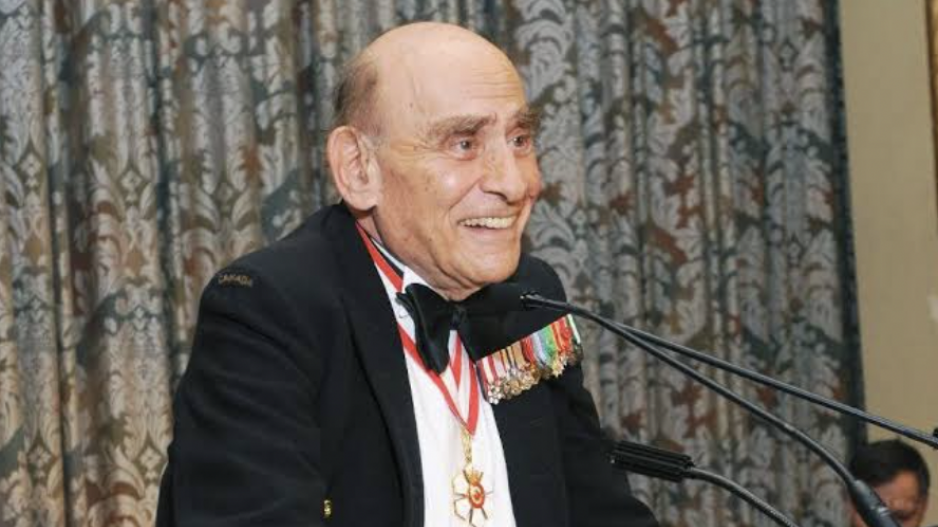In August 2000, I arrived in ÎÚÑ»´«Ã½ to start a master of journalism at the University of British Columbia. I tried to cram in as much knowledge about the country before the start of the school year.
Donna Logan, the director of what was then called the Sing Tao School of Journalism (now the UBC School of Journalism, Writing and Media), lent me her copy of The Canadian Revolution by Peter C. Newman.
I went through the book fairly quickly without realizing that the same Peter C. Newman would be one of my professors days later. The course method he devised was based on a simple dictum: “Journalists are being transformed into mediators between events and readers. That makes journalists storytellers, not merely story repeaters.”
Every Tuesday for two semesters, about 25 students listened to Peter as he told stories on how to interview and how to write. We then went away to craft our own pieces and got ready for Peter and the rest of the class to critique them. “In some villages, you tell stories and pass your bowl at the end,” he told us in our first class. “If the story was good, the bowl is full of rice.”
I really wanted to impress this man. My first foray discussed the supposed democratic transition in Mexico. I spent hours agonizing over which adjectives to utilize. I added footnotes to a printed Word document, thinking this emulation of The Canadian Revolution would win Peter over. It did not. “This is a very good start (8),” he wrote. I interpreted it as: “This needs a lot of work.”
I wrote about music and culture in Spain. “Needs organization (8).” A thorough review of the International Olympic Committee (IOC) was returned with the words: “Make it saleable (8).” No matter what I did, I could not go higher than 8.
One Tuesday, as our class evolved into a lengthy discussion about objectivity, Peter told us: “The best way to remain neutral is to attack everybody.” Maybe attacking would improve my grades. Our next subject was the editor of a national newspaper, who visited us for a lunch conference. I went full-on nasty and it showed. “A bit harsh, don’t you think? Not your usual value-added copy (7).” Attacking lost me a point.
When I returned to class from the Christmas break, I realized I had spent six months trying to do well in this class and neglected other courses. Nothing had worked, so I decided to just write what I felt like writing, correcting as little as possible.
That is how I found my voice. Peter returned my pieces with phrases like “Full of creative energy (9)” and “Humour right on target (9)”. One got a “Publishable, surely (9.5)”. Whatever I was not doing was filling my rice bowl.
The two-semester course ended with a one-on-one chat in May 2001. Peter congratulated me on my improvement. “You were trying too hard at the beginning,” he said. “Don’t ever think you’re not good enough to be here.” Being told this by a fellow immigrant to ÎÚÑ»´«Ã½ was exceedingly reassuring.
I thought those would be the last words I heard from Peter, but thankfully, I was wrong. In 2003, I started working as his editorial researcher for two books. Most people in the industry knew Peter was putting together his autobiography (Here Be Dragons), but the preparation of the other book (The Secret Mulroney Tapes) was a secret kept by fewer than a dozen people. I collected boxes of printed papers and tapes, going through every line to seek, as Peter would say, the “quotations from the chairman.”
At the time, Peter was splitting his days between ÎÚÑ»´«Ã½ and Switzerland. In the spring of 2005, he asked me to meet him on his boat at Coal Harbour for a review of three chapters. I prepared a document we could analyze on a laptop, but Peter would not look at a small screen. He asked me to print everything. We ended up cutting the desired quotes from the printed papers, stapling them together in empty sheets to create a narrative. We went through a couple of boxes of staples that Saturday afternoon, never leaving the docked boat. I emerged with a mild case of seasickness and about 70 pages to transcribe. The book was ready.
Six years later, as Peter prepared his book on Michael Ignatieff (When The Gods Changed), we spoke again. I was thrilled to be interviewed about the 2011 federal campaign, and the moment in which it became evident that the Liberal Party would not garner the backing of 20 per cent of voters across ÎÚÑ»´«Ã½. We even had time for a joke about tapes and taped interviews.
Following his move to Ontario, Peter and I remained in touch through email. His message of congratulations after Research Co. began operations in 2018 was a welcome sight. “Working for yourself is the best,” he wrote to me. He was right. It still is.
You may have read a lot about Peter’s books and columns in the days following his passing. As his former student and researcher, I am immensely fortunate to have benefited from his mentorship. Whether we discussed the news of the day, or the contents of a decades-old interview, the premise he built his career upon was always present: “Turning journalism into a literary craft designed to catch and maintain readers’ attention.” The way we communicate may have changed dramatically on account of technology, but the goal of filling the rice bowl continues unabated.
Mario Canseco is president of Research Co.

